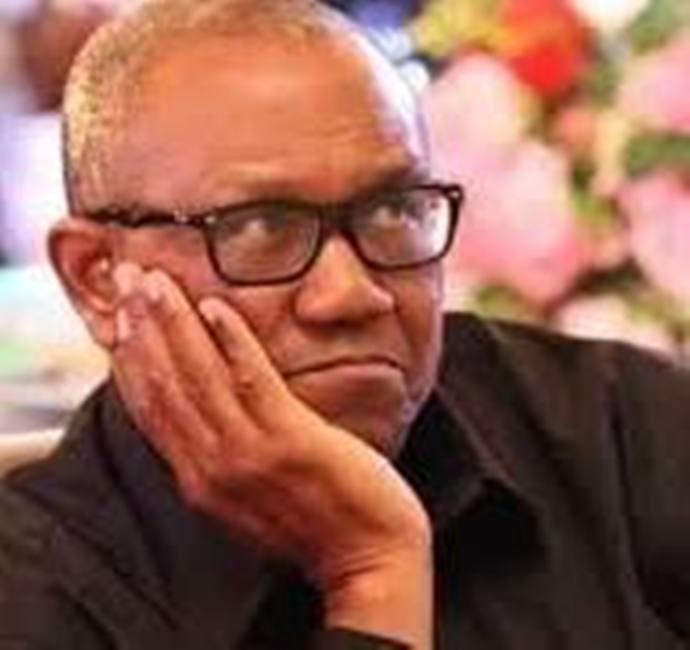Mr. Peter Obi | File Image
In a nation where governors often leave their states in debt, Obi left unimaginable surpluses – over N75 billion.
By Valentine Obienyem
Today, July 19, 2025, marks the sixty-fourth year in the life of Mr. Peter Obi – A man whose name, with each passing season, takes deeper root in the chronicles of Nigerian history.
To speak the truth of him, even at the risk of exhausting an ocean of ink, is to acknowledge that he has emerged, quietly yet unmistakably, as the most beloved and enduringly popular figure in the annals of the nation since its inception.
For popularity, in its truest and most lasting sense, is not merely a measure of fleeting applause or the roar of crowds; it is the affection of a people distilled over time, the celebration of a life that mirrors their nobler aspirations, and the propagation of ideals that echo their hunger for justice, prudence, and moral clarity.
In Peter Obi, the people have not only found a leader, they have embraced a conscience.
For 15 years now, I have, perhaps rashly, taken it upon myself to mark his birthday each year with an article.
Last year, I wrote on a concept I coined as Obimentalism, which I described as follows: “Coined from Obi and development, Obimentalism is a philosophy that aims to inspire and guide individuals to become active participants in building a better society – one in which everyone has access to opportunities and resources needed to thrive.”
After the article was published, a lecturer in philosophy – always animated by the spirit of Obimentalism – called me and accepted the challenge.
He told me he would gladly contribute to popularising Obimentalism, not necessarily because of Obi himself, but because the political philosophy it embodies ought to be embraced by Nigerians, especially politicians, as a guide to shaping their politics in the direction of genuine service, for the good and progress of society.
I also discussed Obimentalism with seasoned philosophy lecturers across the country.
A professor at the University of Ibadan expressed interest in expounding its tenets. Prof. Okey Ikechukwu, my mentor, whom I call the polymath, who had earlier promised to produce a detailed treatise on the subject, may have forgotten that commitment.
He had told me that his approach would be critical and scholarly, involving a thorough distillation of the philosophy and an examination of some of its components through the lens of pragmatism.
For instance, we would raise questions about the meaning and limits of the popular slogan “We no de give shishi.” Should shishi be given in certain circumstances?
What is the place of consensus building in Obimentalism?
How does Obimentalismaccommodate critical and structured opposition within its framework?
How does it distinguish between principled frugality and strategic investment?
What role does empathy play in decision-making under the banner of fiscal discipline? Is there a tension between idealism and political pragmatism in Obimentalism, and how is it resolved?
What ethical guidance does it offer for navigating alliances with morally ambiguous actors in pursuit of the greater good?
Does Obimentalismprovide an ethical framework flexible enough to address moral dilemmas in real politics? What kind of political reality does Obimentalism assume or bring into being – is it merely a moral stance, or does it constitute a distinct mode of being in governance?
Does Obimentalism propose a new theory of the state, or is it a reformist model within existing structures?
Also read: Obi’s humility in service
How does it reconcile individual freedom with collective responsibility?
Is it compatible with liberal democracy, or does it lean towards communitarian ideals?
These are the kinds of inquiries his proposed work was meant to address, questions that must be asked, if Obimentalism is to evolve into a serious political and philosophical tradition rather than a passing campaign ethic.
For one seasoned academic in a Nigerian university, Obimentalism represents a timely and necessary intervention in the nation’s political discourse.
He views it not merely as a personalist ideology centred on any single figure, but as a framework capable of reorienting political leadership towards ethical responsibility, fiscal discipline, and people-centred governance.
In his view, Obimentalism deserves rigorous academic interrogation, as it offers a moral compass in a polity often adrift in opportunism and transactional politics.
A year after my initial proposition, and to the best of my knowledge, four higher institutions – one university, a major seminary, a federal polytechnic to my knowledge have begun introducing the concept to their students.
While this development is encouraging, much more still needs to be done to deepen its academic engagement and institutional adoption.
On the 23rd of February, 2025, a lecturer in the Department of Philosophy forwarded to me a question that had been set for students in a Social and Political Philosophy course.
The question read: “Can ‘Obimentalism’ be systematised as an original African contribution to contemporary political philosophy? A study of Peter Obi’s political thought and praxis.”
Curious – given how dear the subject is to me – I made further inquiries and discovered that the question was set by the lecturer himself.
I reached out afterwards, and he was surprised to learn that I had found out. I told him he should have mentioned it to me, but he responded: “Val, it is not about you or about Peter Obi. It is about using whatever tools are available to promote good governance across Africa.”
I later learnt that he had shared the article on Obimentalism with his students and engaged them in a full discussion of its core ideas during class.
What the lecturer has done – and what I have sought, through this article, to gently yet persistently cajole my mentor, Prof. Okey Ikechukwu, into doing– is precisely what I now earnestly enjoin all lecturers in the fields of philosophy, political science, and other allied disciplines to consider.
We have among us a golden fish, one of a kind seldom witnessed in African political history.
What we owe to humanity, and to posterity, is to make him better known and to critically articulate his political philosophy for the greater good of society.
It is a call to the academy, the Church, civil society, and the youth to take seriously the urgent task of engaging with Obimentalism as both an intellectual framework and a moral compass. In Obi, we find a living legacy; in Obimentalism, we find the language to preserve and transmit it. Let scholars write, students question, and the public reflect, so that Obimentalism may become the name by which a generation remembers that good leadership was not only possible but is still within reach.
.Obienyem, a lawyer and public affairs analyst, writes from Awka.












